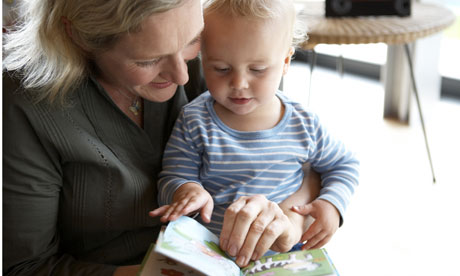
Women who have children later in life may face a higher risk of depression than younger mothers, according to research that drew on a health survey of thousands of Canadian women.
In the study, scientists asked whether women who had given birth in the past five years had experienced an episode of depression in the previous 12 months. They found that women aged between 40 and 44 years old were five times as likely to have been depressed compared with younger women.
The findings are preliminary and have yet to be published, but if confirmed by other studies they could highlight a rapidly growing group of vulnerable women.
Giulia Muraca-Muir, who led the study at the University of British Columbia in Vancouver, said that if the results were accurate they might reflect greater anxiety among older mothers, who may be concerned about the increased health risks to them and their child, or the impact that time away from their job will have on their careers.
Previous research has found contradictory evidence for the risk of depression in older mothers. In a study published in November, Catherine McMahon at Macquarie University in Australia found rates of major depressive illness were below average in mothers aged 37 or older in the four months after they gave birth.
In the latest study, Muraca-Muir trawled the records of 7,936 women whose details were held by the Canadian Community Health Survey, a national project designed to give a representative picture of health across the country.
She looked at rates of depression among mothers, as scored by a standard diagnostic interview. The average across all age groups was 9%. But older mothers seemed to be at greater risk of depression than younger mothers, after the researchers had taken account of other influences on mental health, such as marital and socioeconomic status, and chronic disease.
"We saw a fivefold increase in risk among women aged 40 to 44, compared with those in the 35 to 39-year-old group," Muraca-Muir said. Details of the study were presented at the annual meeting of the American Association for the Advancement of Science in Vancouver.
Though they tended to be richer, better educated, and more likely to be married – factors that typically reduce the risk of depression – the comfort that brought seemed to be overwhelmed in older mothers, perhaps through feeling more anxious about their pregnancy.
If the findings are borne out, they suggest that GPs and family members should offer more support to what is a fast-rising group of women. The number of babies born to women aged 40 to 44 in England and Wales rose from 9,220 in 1990 to 25,973 in 2010, according to the Office for National Statistics. The number of babies born to women aged 35 to 39 rose from 51,905 to 115,841 over the same period.
"We've identified a potential high-risk group that is growing rapidly," Muraca-Muir said. "We need to be able to counsel women on what the psychological consequences of late pregnancy might be."

